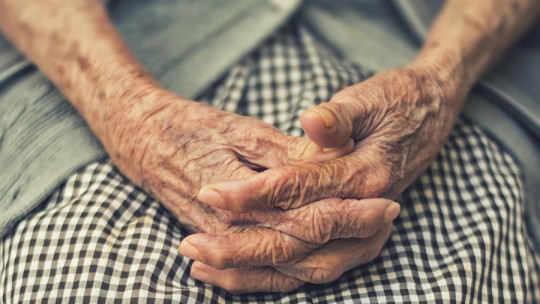There are times when we eat more, and other times less… this is normal, since hunger is influenced by many factors, such as: stress, lifestyle, daily worries, mood…
But what happens when we eat too much, or when we are excessively hungry? So we are talking about a more serious problem… hyperphagia In this article we will see what it consists of, what its symptoms are, its causes (which can be medical and/or psychological) and possible treatments for it.
Hyperphagia: what is it?
The word hyperphagia comes from the Greek term “hyper-” (which means abundance, excess) and the term “-phagia” (which means to eat). That is, technically it translates as an increase in food intake, produced by an increase in appetite (although the cause may be something else).
So, In hyperphagia (also called polyphagia) an excessive increase in appetite appears, which is added to uncontrolled food intake It usually occurs without apparent cause, although throughout the article we will try to investigate its causes, which often have to do with medical or hormonal issues, beyond psychological ones.
People who suffer from hyperphagia are unable to differentiate when they feel real appetite and when they feel anxiety, and therefore they overeat in both situations. Uncontrolled eating cycles in people with hyperphagia can vary greatly from one person to another, and we find persistent cycles of appetite, and cycles of more or less appetite (which vary).
The direct consequence of hyperphagia, added to many others that may be less visible to the naked eye, is an increase in body weight , overweight or obesity (which does not always have to appear). This overweight or obesity can lead to cardiovascular disease or diabetes.
Symptoms
The symptoms of hypergagia are as follows.
1. Increased appetite/compulsive need to eat
It may happen that an increase in appetite appears, or that it really is not, and that it is more of an “anxiety about eating” or the need to eat impulsively and/or uncontrollably This would be the main symptom of hyperphagia.
2. Feeling of guilt
Associated with the previous symptom, a feeling of Guilt for overeating
3. Preference for sugary or fatty foods
Another symptom of hyperphagia is the preference, by the person who suffers from it, for highly caloric foods, with a high fat and/or sugar content (for example sweets, industrial pastries, fried foods, etc.).
4. Overweight or obesity
As we have already seen at the beginning, suffering from hyperphagia can lead to problems of being overweight or even obese, which in turn can cause different types of diseases, especially cardiovascular and endocrine diseases (for example diabetes).
5. Digestive problems
Another consequence of hyperphagia is digestive problems, which They appear due to uncontrolled or excessive eating, which prevents us from digesting food well
Causes
The causes of hyperphagia can be diverse, although it is true that they are usually related to more emotional issues, as is often the case with food. Also, but, they may be related to hormonal alterations. Let’s see some of the most frequent causes:
1. Anxiety
Anxiety is an altered psychophysiological state, in which the person can suffer different symptoms such as insomnia, palpitations, dizziness, discomfort, irritability, depressive symptoms, catastrophic thoughts…
In turn, anxiety is one of the possible causes of hyperphagia. Suffering from anxiety can lead many people to eat more, not so much because they have a greater appetite, but because the need to eat arises from that anxiety. Thus, mistakenly, the body associates anxiety with hunger.
2. Bulimia
Suffering from bulimia is another cause of hyperphagia. So, many patients with this eating disorder (ED) can develop hyperphagia
After eating, however, they usually apply compensatory behaviors to counteract that “excess” of food they have ingested (for example through vomiting, use of laxatives, intense physical exercise, etc.).
3. Grave’s Disease
The causes of hyperphagia can also be medical and/or endocrine, as in the case of suffering from Grave’s Disease. This disease consists of an autoimmune thyroiditis that stimulates the thyroid gland One of its symptoms may be hyperphagia.
4. Diabetes mellitus
The disease diabetes mellitus, whose main symptom is excess glucose (sugar) in the blood, can also lead to hyperphagia. Let us remember that the reverse can also happen; that hyperphagia causes diabetes (in this case, type II).
5. Pregnancy diabetes
In this case, diabetes also implies excess glucose in the blood, although the etiology is different, and appears during pregnancy. It can also cause hyperphagia in pregnant women.
6. Hyperthyroidism
hyperthyroidism, an autoimmune disease of the endocrine system that appears when the thyroid gland secretes the hormone thyroxine in excess , can also cause hyperphagia. Thus, people with this disease are at greater risk of gaining weight for this and other reasons.
7. Hypoglycemia
Hypoglycemia is a condition involving low blood glucose levels and can also cause hyperphagia.
8. Premenstrual syndrome
Premenstrual syndrome encompasses a series of physiological and psychological symptoms that appear in women, and that begin during the second half of the menstrual cycle.
These symptoms often include hyperphagia, although not always; Some women feel just the opposite, a lack of appetite or a feeling of bloating.
9. Medications
Finally, certain types of medications can also produce, among their side effects, hyperphagia. Some of the most common are: corticosteroids, antidepressants and antihistamines
Treatment
The treatment of hyperphagia requires addressing the cause of the increased intake and/or appetite. If your cause is anxiety, This should be addressed from a multidisciplinary perspective, ideally with the participation of a psychiatrist and psychologist The important thing is to break this cycle of “anxiety ⇒ anxiety about eating ⇒ uncontrolled or excessive eating.”
Thus, through psychotherapy, the patient must be taught to correctly identify the physiological signs of their body that indicate that they are hungry, and to differentiate these signs from their own anxiety or nervousness.
On the other hand, if the causes of hyperphagia are medication or medical, a medical professional should be consulted so that they can adjust the type of medication and the appropriate dose for the patient, or so that they can make an appropriate medical diagnosis in case not yet available. In these cases, what is usually done is to perform a blood and urine test; The functioning of the thyroid gland is also assessed (to rule out hyperthyroidism, among others).









